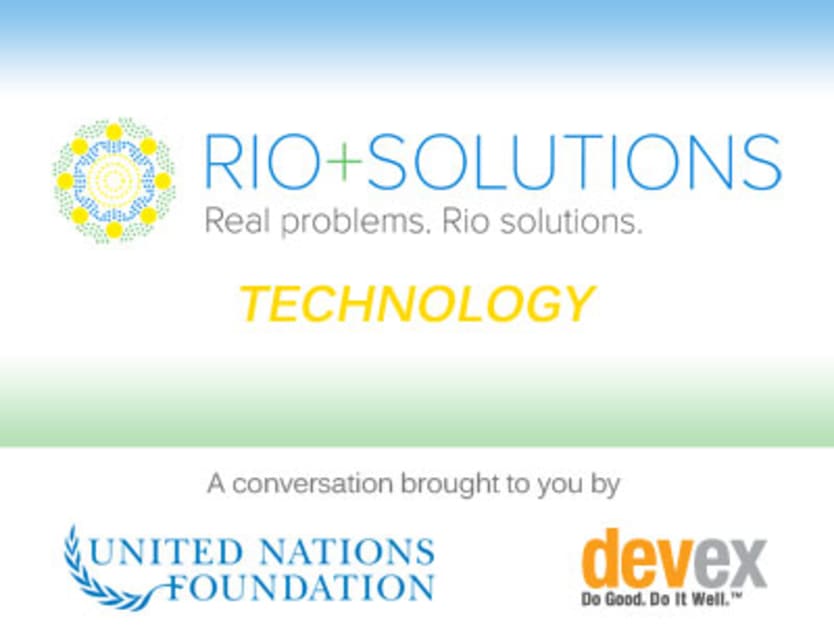
In a few days, governments will convene in Rio de Janeiro, Brazil, for Rio+20. The meeting will mark two decades of international cooperation on climate change that began at the Earth Summit in 1992, also in Rio, and will set the course for the U.N. climate conference in Qatar later this year.
While the economic picture back in 1992 wasn’t entirely rosy, it wasn’t nearly as grim as it is now, especially for European countries. This means that while climate change is as urgent a problem as ever, we must be much, much smarter about how we use public and private money to meet the challenge. EU members spend millions on aid to developing countries, and millions more on carbon offsets. How about consolidating these two expenditures?
As government delegates meet in Rio, they must seek solutions that address both the dangerous changes in our planet’s atmosphere as well as ongoing challenges in development and public health.
While most Western businessmen seek profit in solving “first-world problems,” a minority of entrepreneurs from developed countries have been innovating in behalf of the billions living at the “Bottom of the Pyramid.” For instance, high-tech, low-maintenance household water filters deployed in places where many people lack access to safe water — and in humanitarian emergencies in places such as Haiti and Thailand — have enabled millions to rid water of deadly bacteria, viruses and parasites. And while it may not at first seem evident, these devices can actually help in the climate change struggle too.
Here’s an example. My colleagues and I distributed 880,000 high-performance LifeStraw Family water filters in western Kenya at no cost to the recipients, traditional aid donors or the Kenyan government (which is a valued and necessary partner in the project). In a span of five weeks, we provided about 4.5 million people the ability to treat their own water in their homes. The program uses carbon finance to sustain itself, selling to international markets the carbon credits it earns for reducing the use of and demand for firewood, which many Kenyans in the Western Province use to purify water through boiling. Not only has our company given 4.5 million people the ability to consume safe water at home and, according to preliminary studies, reduced the incidence of waterborne illness among them, it is also sparing the environment some of the impact of “dirty development.”
Solutions like this answer the increasingly louder calls for multipronged climate interventions that not only address the environment, but also disease and poverty. Our approach is one of a new breed of carbon-reduction measures that not only helps mitigate climate change, but also has significant cobenefits for human development. This is not merely a happy coincidence, but rather a necessity, especially since poor people in developing countries are those who bear the brunt of the impact of climate change. Drought, flooding and the made-for-CNN horrors that unfold in the wake of climate-related disasters almost always claim citizens of developing countries as their victims.
Climate change policy should tap these abilities by recognizing an “impact market” where climate change mitigation and developmental achievements are duly — and dually — rewarded. The robust sustainable development goals that leaders will discuss in Rio ought to dovetail with such a market, rallying the international business sector to respond in an innovative, efficient and comprehensive way.
We invite public actors to help us innovate game-changing methodologies and new market formations. We must all seek comprehensive approaches to complex problems through technology, improved service delivery and novel forms of finance to achieve sustainability and significant scale. If this happens, strapped European governments will be able to optimize their foreign aid and carbon-offsets expenditures.
We commit to continuing to innovate, and ask that policymakers foster such creativity by recognizing that climate change, health and development are in fact inseparable. Future climate policy must be shaped in a way that rewards gains for both.
Tell us what you think! Comment below or tweet to @devex with #RioPlusSolutions, and catch up on other Rio+Solutions content here or on Facebook. And to learn more about the world’s first carbon offset project linked to a water project in the developing world, watch this video about LifeStraw in Kenya.








